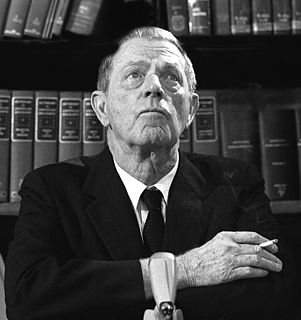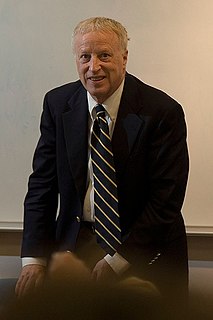A Quote by Hu Shih
Another important historical factor is the fact that this already very simple religion was further simplified and purified by the early philosophers of ancient China. Our first great philosopher was a founder of naturalism; and our second great philosopher was an agnostic.
Related Quotes
I was trained as a philosopher never to put philosophers and their ideas into historical contexts, since historical context has nothing to do with the validity of the philosopher's positions. I agree that assessing validity and contextualizing historically are two entirely distinct matters and not to be confused with one another. And yet that firm distinction doesn't lead me to endorse the usual way in which history of philosophy is presented.
I have always taken as the standard of the mode of teaching and writing, not the abstract, particular, professional philosopher, but universal man, that I have regarded man as the criterion of truth, and not this or that founder of a system, and have from the first placed the highest excellence of the philosopher in this, that he abstains, both as a man and as an author, from the ostentation of philosophy, i. e., that he is a philosopher only in reality, not formally, that he is a quiet philosopher, not a loud and still less a brawling one.
Men are not philosophers, but are rather very foolish children, who, by reason of their partiality, see everything in the most absurd manner, and are the victims at all times of the nearest object. There is even no philosopher who is a philosopher at all times. Our experience, our perception is conditioned by the need to acquire in parts and in succession, that is, with every truth a certain falsehood.
Some time ago a little-known Scottish philosopher wrote a book on what makes nations succeed and what makes them fail. The Wealth of Nations is still being read today. With the same perspicacity and with the same broad historical perspective, Daron Acemoglu and James Robinson have retackled this same question for our own times. Two centuries from now our great-great- . . . -great grandchildren will be, similarly, reading Why Nations Fail.
One could say that what differentiates ancient from modern philosophy is the fact that, in ancient philosophy, it was not only Chrysippus or Epicurus who, just because they had developed a philosophical discourse, were considered philosophers. Rather, every person who lived according to the precepts of Chrysippus or Epicurus was every bit as much a philosopher as they.
There has certainly been a great deal of work addressing the relationship between naturalism and the first-person perspective. Quite a number of philosophers have suggested that there are features of the first-person perspective that naturalism just cannot accommodate, whether it be qualitative character, or consciousness, or simply the ability we have to think of ourselves in a distinctively first-person manner.
What great philosophers do for us is not to hand out such an all-purpose system. It is to light up and clarify some special aspect of life, to supply conceptual tools which will do a certain necessary kind of work. Wide though that area of work may be, it is never the whole, and all ideas lose their proper power when they are used out of their appropriate context. That is why one great philosopher does not necessarily displace another, why there is room for all of them and a great many more whom we do not have yet.
We must teach our people the greatness of China's historical culture. In our educational program we must stress Chinese history and geography so that all may know and appreciate China's civilization of five thousand years and the far-flung boundaries of our ancient race. This will engender a greater faith in our own future.







































